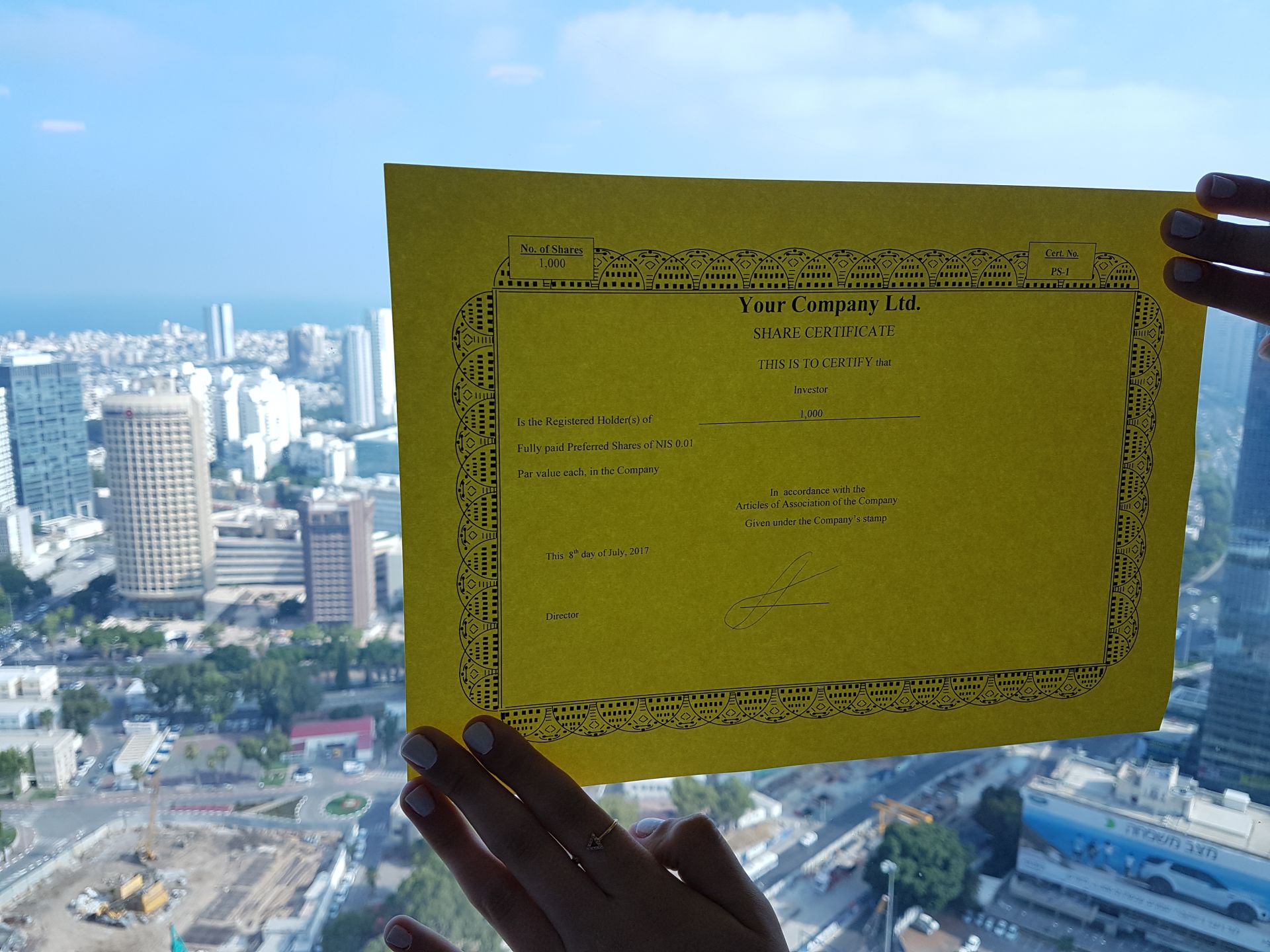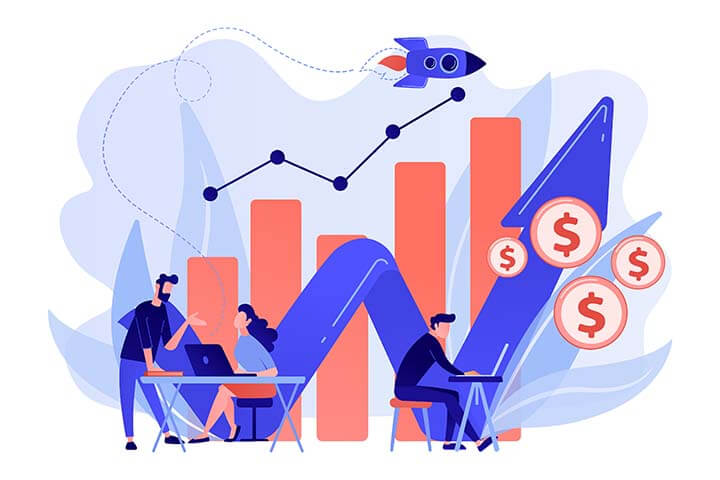The Corporate Dilemma - Incubator? Accelerator? Or Commercialization Program?
06.05.2018

In previous years it was common for corporates to cooperate with startups through two means: corporate venture capital or via a strategic partnership. Today there are various different forms of corporate programs that can be found all around the world: incubators, accelerators, and commercialization programs. I have previously blogged about how corporates win when they work with startups and how startups win when they work with corporates but finding the right platform for this can be difficult. They all offer widely different functionalities and benefits which I’ll outline in depth below. I grew my company from just an idea to a global startup using 4 different corporate programs run by Coca-Cola, Microsoft and Deutsche Telekom and Publicis. Here’s what I learned on the way:
Incubators - The Bear Hug
What is it?
A program for young startups typically before the product market fit stage, usually lasting between 12-36 months that supports companies with an array of services and resources. It is the tightest and most controlling form of cooperation that corporates offer which is why I refer to it as “the bear hug”. While the program provides much support with the aim of nurturing, it usually comes with an equity investment and a binding agreement that holds some limitations on the startup.
The good
It has the potential to be mutually beneficial for both parties involved - the startup who at this stage is desperately lacking in everything other than ideas and passion receives the resources they need whether it’s office space, hardware, mentorship or funding, and the corporate gets first dibs on new products and talented entrepreneurs.
The bad
Having a corporate with bear-hug style tight control over a startup can affect and even possibly damage the evolution of the company and product. Startups need to innovate, experiment and pivot in order to flourish and if the startup begins to pivot away from a product that matters to the corporate the relationship can become flawed. Additionally, early-stage startup equity can sometimes be challenging for publicly traded companies.
Accelerators - The Quick And Dirty
What is it?
Accelerator programs support early-stage companies through education and mentorship and usually run for a timeframe of a few weeks to a few months. The turnover is quick and fast with startups moving through the program in batches or cohorts. The startups are emerged in an intense process aimed at accelerating some parts of the startup lifecycle (e.g. creating a sound and clear business model) with benefits including access to a vast mentor network and a wide array of resources. There is usually no equity exchange involved but some corporates will demand a small portion of equity or the option to invest in the future in return for participation in the program.
The good
Exposure is the key word here. Due to the fast pace of the program, the corporate is exposed to a huge number of startups and in exchange, the startup is exposed to a network of industry leaders, investors, and potential customers. The corporate also gives the startup access to resources including office space, technical support and funding sources in return for early access to promising products, ideas, and entrepreneurs.
The bad
Due to the nature of the short program, in many cases the startups are too young and their product isn't mature enough to be able to work successfully either alongside or as a vendor for a corporate, and even if the product is ready, a few months is short even for an experienced team to create the initial connection between the startup and the corporate. After the program there is a good chance that there won’t be a positive ROI on either side: i.e. If the startup needs more help, or more direction it’s unlikely that they’ll get it from the accelerator team - they will have already moved on and will have a new batch of entrepreneurs to tend to. The corporate will see a bad return on investment because the young age of the startups means the chances of failure are higher, and statistically many of them will close not too long after the accelerator period.
Commercialization Programs - Show Me The Money
What is it?
A unique type of program that acts most integrally as a bridge between the startups and the global markets. These programs accept early stage to growth startups who’s technologies or products have a direct ability to help the corporate or their partners with the goal of immediately piloting the solution toward the opportunity to license it for a long-term agreement. The programs often last around 6 months but it doesn’t end there. The point of the program is to create a successful cooperation between the chosen startup and the business unit which means the corporate is incentivized to continue supporting the program graduates as alumni for a long time after.
The good
The program’s sole focus is to create a close strategic alignment between the startup and the relevant business unit from the corporate side so the corporate program team are focused and are looking for technologies that will improve the corporate’s offering and/or will save money or generate money for the corporate.The program allows the corporate to play to its own strengths in what it can provide for the startup. Firstly, each and every business unit serves as a potential customer to the startup - access to a willing pool of customers is invaluable at this early stage in the company’s journey. Secondly, the corporate has a network of partners that can open many more opportunities for the startup. And lastly, the potential for future business opportunities/investments/mergers and acquisitions that could evolve from a real business corporation with a business unit of the corporate is huge. Not only does it benefit the startups but it creates an unfair competitive advantage for corporates over the other incubator or accelerator programs out there.
The bad
In a commercialization program, if the corporate and the startup do everything right, the program will give all sides the best of both worlds. The bad will only occur if something goes wrong during the setup and application stage of the program. It could be the case of a wrong product or it may be that the startup comes to understand that they don’t have the resources and means to support a corporate customer. In these cases, the commercialization program will have the same shortcomings as the accelerator programs.
The Verdict - Commercialize Don’t Hug or Accelerate
If it’s done right the commercialization program will create a win-win situation that takes the good from the other two types of program and plays up to the corporate’s strengths. The startup has access to a pool of global customers and a helping hand to assist them in this process, and the corporate receive first access to technologies or products that aren’t yet available on the global market while simultaneously injecting innovation into their organization. In my next two blogs from the series, I’ll guide you as a corporate/startup in your first steps towards establishing a win-win cooperation.
Adir Zimerman is a multicultural entrepreneur and a keynote speaker. He is the co-founder and CEO of SCREEMO. By implementing a unique enterprise sales approach Adir grew SCREEMO into a global company operating in North America, Europe and APAC with fortune 500 companies including: Walmart, Coca-Cola, Microsoft and more.
Adir will be giving a talk on the subject of this article on May 22 in Tel Aviv - you can sign up to attend here.
Incubators - The Bear Hug
What is it?
A program for young startups typically before the product market fit stage, usually lasting between 12-36 months that supports companies with an array of services and resources. It is the tightest and most controlling form of cooperation that corporates offer which is why I refer to it as “the bear hug”. While the program provides much support with the aim of nurturing, it usually comes with an equity investment and a binding agreement that holds some limitations on the startup.
The good
It has the potential to be mutually beneficial for both parties involved - the startup who at this stage is desperately lacking in everything other than ideas and passion receives the resources they need whether it’s office space, hardware, mentorship or funding, and the corporate gets first dibs on new products and talented entrepreneurs.
The bad
Having a corporate with bear-hug style tight control over a startup can affect and even possibly damage the evolution of the company and product. Startups need to innovate, experiment and pivot in order to flourish and if the startup begins to pivot away from a product that matters to the corporate the relationship can become flawed. Additionally, early-stage startup equity can sometimes be challenging for publicly traded companies.
Accelerators - The Quick And Dirty
What is it?
Accelerator programs support early-stage companies through education and mentorship and usually run for a timeframe of a few weeks to a few months. The turnover is quick and fast with startups moving through the program in batches or cohorts. The startups are emerged in an intense process aimed at accelerating some parts of the startup lifecycle (e.g. creating a sound and clear business model) with benefits including access to a vast mentor network and a wide array of resources. There is usually no equity exchange involved but some corporates will demand a small portion of equity or the option to invest in the future in return for participation in the program.
The good
Exposure is the key word here. Due to the fast pace of the program, the corporate is exposed to a huge number of startups and in exchange, the startup is exposed to a network of industry leaders, investors, and potential customers. The corporate also gives the startup access to resources including office space, technical support and funding sources in return for early access to promising products, ideas, and entrepreneurs.
The bad
Due to the nature of the short program, in many cases the startups are too young and their product isn't mature enough to be able to work successfully either alongside or as a vendor for a corporate, and even if the product is ready, a few months is short even for an experienced team to create the initial connection between the startup and the corporate. After the program there is a good chance that there won’t be a positive ROI on either side: i.e. If the startup needs more help, or more direction it’s unlikely that they’ll get it from the accelerator team - they will have already moved on and will have a new batch of entrepreneurs to tend to. The corporate will see a bad return on investment because the young age of the startups means the chances of failure are higher, and statistically many of them will close not too long after the accelerator period.
Commercialization Programs - Show Me The Money
What is it?
A unique type of program that acts most integrally as a bridge between the startups and the global markets. These programs accept early stage to growth startups who’s technologies or products have a direct ability to help the corporate or their partners with the goal of immediately piloting the solution toward the opportunity to license it for a long-term agreement. The programs often last around 6 months but it doesn’t end there. The point of the program is to create a successful cooperation between the chosen startup and the business unit which means the corporate is incentivized to continue supporting the program graduates as alumni for a long time after.
The good
The program’s sole focus is to create a close strategic alignment between the startup and the relevant business unit from the corporate side so the corporate program team are focused and are looking for technologies that will improve the corporate’s offering and/or will save money or generate money for the corporate.The program allows the corporate to play to its own strengths in what it can provide for the startup. Firstly, each and every business unit serves as a potential customer to the startup - access to a willing pool of customers is invaluable at this early stage in the company’s journey. Secondly, the corporate has a network of partners that can open many more opportunities for the startup. And lastly, the potential for future business opportunities/investments/mergers and acquisitions that could evolve from a real business corporation with a business unit of the corporate is huge. Not only does it benefit the startups but it creates an unfair competitive advantage for corporates over the other incubator or accelerator programs out there.
The bad
In a commercialization program, if the corporate and the startup do everything right, the program will give all sides the best of both worlds. The bad will only occur if something goes wrong during the setup and application stage of the program. It could be the case of a wrong product or it may be that the startup comes to understand that they don’t have the resources and means to support a corporate customer. In these cases, the commercialization program will have the same shortcomings as the accelerator programs.
The Verdict - Commercialize Don’t Hug or Accelerate
If it’s done right the commercialization program will create a win-win situation that takes the good from the other two types of program and plays up to the corporate’s strengths. The startup has access to a pool of global customers and a helping hand to assist them in this process, and the corporate receive first access to technologies or products that aren’t yet available on the global market while simultaneously injecting innovation into their organization. In my next two blogs from the series, I’ll guide you as a corporate/startup in your first steps towards establishing a win-win cooperation.
Adir Zimerman is a multicultural entrepreneur and a keynote speaker. He is the co-founder and CEO of SCREEMO. By implementing a unique enterprise sales approach Adir grew SCREEMO into a global company operating in North America, Europe and APAC with fortune 500 companies including: Walmart, Coca-Cola, Microsoft and more.
Adir will be giving a talk on the subject of this article on May 22 in Tel Aviv - you can sign up to attend here.











